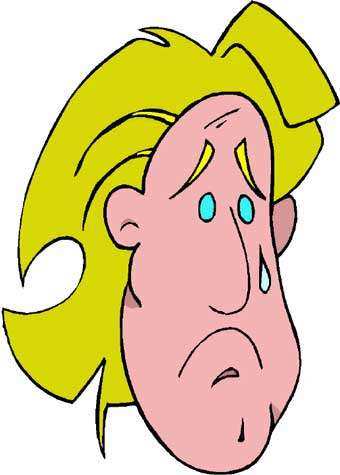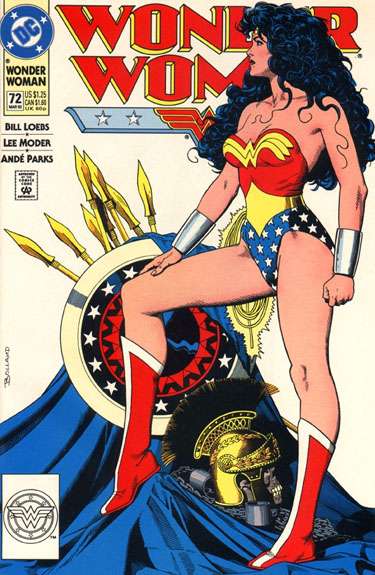 This blog, which nobody actually reads anyway, challenges the prevailing viewpoint. It’s an idea whose time has come. “Prevailing viewpoint” has never, I daresay, been easier to define with regard to any issue that comes down the chute. What’s the prevailing viewpoint on whether President Bush lied to get us into a war? What’s the prevailing viewpoint on global warming? Like never before, the size, shape and texture of things-you-are-supposed-to-think is laid out and colored in, with crystal clarity.
This blog, which nobody actually reads anyway, challenges the prevailing viewpoint. It’s an idea whose time has come. “Prevailing viewpoint” has never, I daresay, been easier to define with regard to any issue that comes down the chute. What’s the prevailing viewpoint on whether President Bush lied to get us into a war? What’s the prevailing viewpoint on global warming? Like never before, the size, shape and texture of things-you-are-supposed-to-think is laid out and colored in, with crystal clarity.
But what’s really correct? Nobody knows…and few seem to care.
Now I can’t prove it, but I would seek to assert that the prevailing viewpoint also — as never before in human history — is starkly at odds with what the evidence supports on each issue. It’s either non-correlative to the truth, like a stopped clock is non-correlative to the correct time…or it is antithetical to it. And with each matter brought to my attention as I go over the news and find out what’s going on, it seems the prevailing viewpoint is leaning farther and farther in the direction of hostility to the truth, rather than simple apathy toward it. It seems to all start with the pursuit of this sense of irony. To suppose that the United States government was blindsided by the September 11 attacks like the rest of us, may net someone a certain amount of attention…to opine that the government was engaged in a conspiracy theory, will attract a great deal more. And so the truly attention-starved will lean toward conspiracy theories.
Who’s willing to bet a substantial portion of their personal fortunes that there was a conspiracy, though? I’ve not seen anyone do such a thing. And yet the theories still roll on in.
Now, it occurs to me with this thoroughly brain-damaged opinion piece in the San Bernardino Sun, that the crying-man is an even better example of this.
Alfred Baltazar considers himself a weak man.
At the tender age of 40, Baltazar cries with such frequency that his sisters have labeled him “Weeping Wanda.” It’s a habit he’s always had, but one that became more commonplace when his mother died five years ago because, as he explained, she meant the world to him.
Perhaps, though, Baltazar has confused his perceived weakness with being a man who is confident enough to show his emotions.
These are tough times for Baltazar, who finds himself one of tens of thousands of parents and spouses waking this Christmas morning with a loved one serving in Iraq or Afghanistan. Baltazar’s son, Steven, is a navigator on a tank in a unit serving in Baghdad.
“I’m not strong,” said Baltazar, who separated from his son’s mother about four years ago, although the two remain close friends. They had no other children.
“This is just so hard,” Baltazar said. “I just miss him.”
But really, is a man weak because he fears for his son’s safety and shows that emotion through the tears that roll down his cheeks?
Strength, it would seem, should be evaluated not by emotions but by actions that overcome those emotions, which could make some people roll themselves up in a little ball and surrender.
Threadbare cliches all around.
Now look…I’m pretty sure it’s easy to find a man who’s genuinely strong, in several of the ways that matter, who’s going to start boo-hoo-hooing at the right time. And yet the author makes reference to a man “confident enough to show his emotions,” implying that men who cry are stronger than men who do not.
The article goes on to tell an anecdote about how the non-crying son just flabbergasted the blubbery dad, by refusing to come home because…
[The son] Steven’s tank was damaged from an attack while on patrol. An explosive device rocked the tank, causing Steven to hit his head, knocking him out for a few hours, his father said.
Baltazar learned of the attack quickly, but for three days had no news about his son’s health. He was of course relieved when he finally heard his son’s voice, but he was struck by the sound of fear that he had not heard in his boy.
“I know he’s not going to come back the same, whether it’s physically or emotionally,” he said. “I can hear it in his voice.”
Baltazar hoped unsuccessfully that the Army would send his son home.
But the little boy he used to hold in his arms told him he would not have wanted to come back. Suddenly, confidence and maturity replaced the fear. His duty, his son explained to his father, has not yet been fulfilled.
It’s a moment that continues to startle Baltazar.
“I don’t know where he got the strength,” Baltazar said. “I am so proud of him. He’s surpassed everything that I thought he could accomplish in his life by this point. And he’s done it on his own.”
The editorial clings to the notion that men who buck up & suck up & soldier on, are not as “confident” as the weeping wallflowers. Anybody want to bet a LARGE amount of money that this is the case, overall? Anybody want to bet the 401k that we have the wrong family male out there patrolling the area in a tank, that the stoic son has something to learn from the weeping dad? That his tank buddies are going to do a superior job of carrying the fight to the enemy if they’re blubbering away?
How about the younger mans’ boot camp drill instructor, what would he say? Has he done his level best to prepare a batch of hardened killing machines, if they’re stumbling out of camp and into battle with tears bravely rolling down their faces and adams-apples bobbin’ up and down?
I’d venture to say not.
But Google the innernets sometime. How many opinion pieces do you find that support common sense…that enduring adversity, and keeping your head together, is a traditional manifestation of masculinity for a reason? That being a real man is all about taking on your challenges — and — at the same time, making it easier for everyone to take on theirs?
That’s just so self-evident, there’s really no reason to ponder it anymore. We had a time here in the United States where it was very fashionable to say a “real” man, was an emotional man. It didn’t last terribly long. It went out with mutton-chop sideburns and leisure suits, and there’s a reason for that.
It wasn’t so much about defining manhood, as about re-defining it. Simply put, we learned it was a lot of bullshit and we moved on.
And now we have the innernets…which, weighing the content as a whole…promotes, some more, and with remarkable and alarming consistency, said bullshit.
We have this artcle here, just a scraping off the top of the big ol’ cow patty. Somehow, it likes to turn my Firefox browser, itself, into a blubbering, whining, dysfunctional mess due to some problems with the hosting site or the ad banners or something. I find that metaphorical for the message it seeks to deliver.
Most men have been socialized to view crying as a sign of weakness. It is an act that symbolizes an inherent lack of self-control, which they expect from women and ridicule in men.
This simply is not true.
In fact, crying is thought to serve a number of important physiological functions. Having the courage to express your emotions in public should be considered a sign of strength, not weakness.
Okay, we know what the lady wishes to say and we know what she seeks to prove. Crying is not a form of weakness…in fact, once again we have this worn-out little talking point about “courage to express your emotions in public.” The intent is obvious: If you don’t cry in public, you lack courage. Some would say I’m putting words in her mouth. But if she doesn’t want to say that, then why use the c-word in the first place? The thing to be proven, is that it hasn’t been demonstrated or put into doubt. So why battle some stereotypes by spreading others?
I’ve seen all of the important men in my life cry. My father, my husband and my best friend are males who have shed tears in public.
Does this make them weak?
Or does this mean they are stronger than the men who allow their actions to be controlled by the fear of being judged or labeled?
I agree with the Big Lebowski when he says “Strong men also cry.”
The young lady who wrote this two years ago was some kind of college student. This is indicative of something terrible going on in higher-level education. When someone graduates from college, I expect them to be skilled in pursuing logic and common sense. Mathematically, if no other way — as in, the I.Q. test question that asks if all freeps are gloops and all gloops are fraps, what do we know about freeps and fraps?
And clearly, this lady can’t solve problems like that one…or couldn’t in 2004. She seeks to support the notion “strong men cry” — some freeps are not gloops, therefore, anyone saying all freeps are gloops, is wrong. She then supports this by stubbornly insisting: You’re a better freep if you’re un-gloopish. Before she’s done, she’s protesting you can’t be a freep at a gloop at the same time, or something in that direction…something different from her stated thesis. No anecdotes about crying men, going on to demonstrate their strength. That is something that would support the theme of her article. She simply self-indulges the stereotype she seeks to promote, and battles against another stereotype she seeks to defeat.
By herself, she doesn’t show anything is wrong here. But she’s got a lot of company. Behold the prevailing viewpoint.
As far as the central issue, I have little to say on the subject here. Except, simply observing the way women behave around me and other men, and comparing what people in general do against what they say…I don’t think anyone truly believes crying men are strong. They say such a thing, sure. It’s kind of like saying money doesn’t make you happy. People say it, they don’t really mean it. They’re just concerned about how they are perceived, when they say things.
But take this much to the bank. The prevailing viewpoint, again, has failed us and a crisis situation will surely crystalize that failure. When a burglar is breaking into the house at three in the morning, no woman is going to be too interested in her husband or boyfriend confronting the threat downstairs…blubbering away. Doing something to make the intruder do the crying — yeah. That’s a lot more like it.
And NOBODY disagrees with the above. Anybody who says they do, is lying.
 The photoshopping job you see at the right is extremely amateurish and crude. You can take it as my artist’s conception of the Wonder Woman costume Joss Whedon would have used in the upcoming movie. I never did hear about an actress confirmed for the title role. From what I know about Whedon, whatever the selection was going to be, it would have made a powerful and provocative statement about empowering women.
The photoshopping job you see at the right is extremely amateurish and crude. You can take it as my artist’s conception of the Wonder Woman costume Joss Whedon would have used in the upcoming movie. I never did hear about an actress confirmed for the title role. From what I know about Whedon, whatever the selection was going to be, it would have made a powerful and provocative statement about empowering women. She’s physically strong, mentally capable, creative, resourceful, agile and fast. She would be unforgettable, and possibly harmful, in the sack. But she might very well be a virgin. She’s like Lara Croft, nobody really even knows what her sexual preference is, or whether she has one at all. Six foot three with her boots on, an even six or 6’1″ barefoot.
She’s physically strong, mentally capable, creative, resourceful, agile and fast. She would be unforgettable, and possibly harmful, in the sack. But she might very well be a virgin. She’s like Lara Croft, nobody really even knows what her sexual preference is, or whether she has one at all. Six foot three with her boots on, an even six or 6’1″ barefoot.








 This blog, which nobody actually reads anyway, challenges the prevailing viewpoint. It’s an idea whose time has come. “Prevailing viewpoint” has never, I daresay, been easier to define with regard to any issue that comes down the chute. What’s the prevailing viewpoint on whether President Bush lied to get us into a war? What’s the prevailing viewpoint on global warming? Like never before, the size, shape and texture of things-you-are-supposed-to-think is laid out and colored in, with crystal clarity.
This blog, which nobody actually reads anyway, challenges the prevailing viewpoint. It’s an idea whose time has come. “Prevailing viewpoint” has never, I daresay, been easier to define with regard to any issue that comes down the chute. What’s the prevailing viewpoint on whether President Bush lied to get us into a war? What’s the prevailing viewpoint on global warming? Like never before, the size, shape and texture of things-you-are-supposed-to-think is laid out and colored in, with crystal clarity.